20 Foods You Need to Eat in 2018
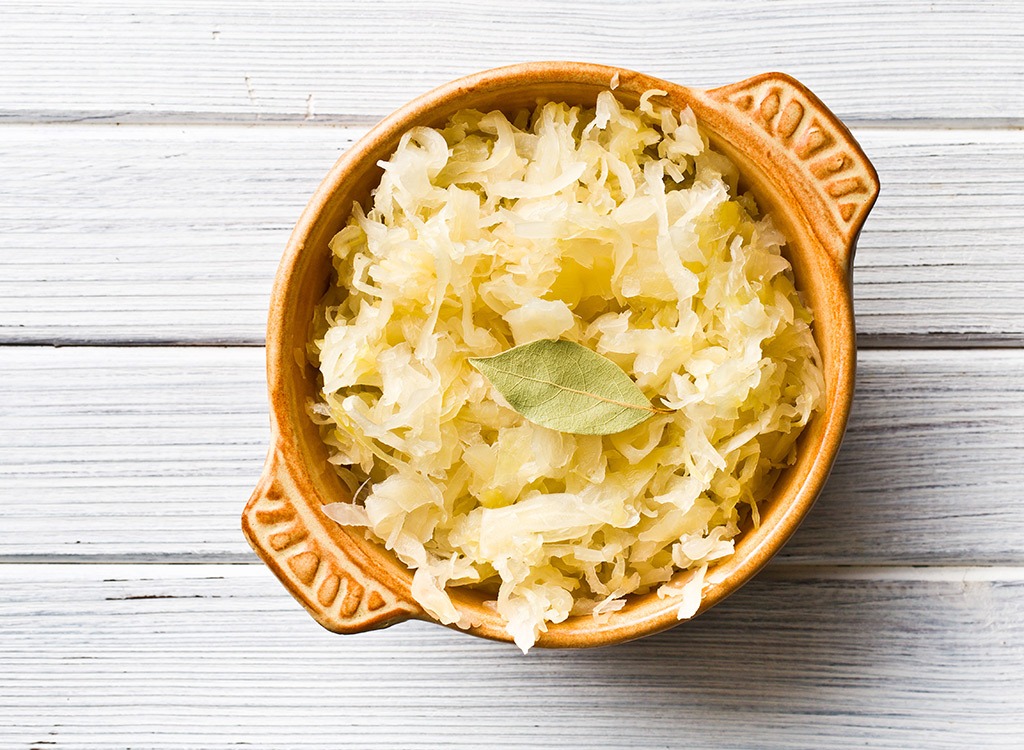
As the new year approaches, everyone is looking for a healthy reset. Maybe you want to lose some of that holiday weight or just adopt healthier habits heading into the new year. And even if your resolution isn't to shed pounds, it's always a good idea to take a look at what you eat every day and make some healthy changes.
That's why we've compiled a list of 20 foods you need to incorporate into your diet. And even if some of these foods are in your fridge, it's worth eating even more of them. From gut-healing probiotics to heart-healthy omega-3s, antioxidants and essential vitamins, these are the healthiest foods you need to stock in your kitchen. Looking for even more healthy eating inspo? Check out our list of 40 Healthy Snack Ideas To Keep You Slim.
Green Tea
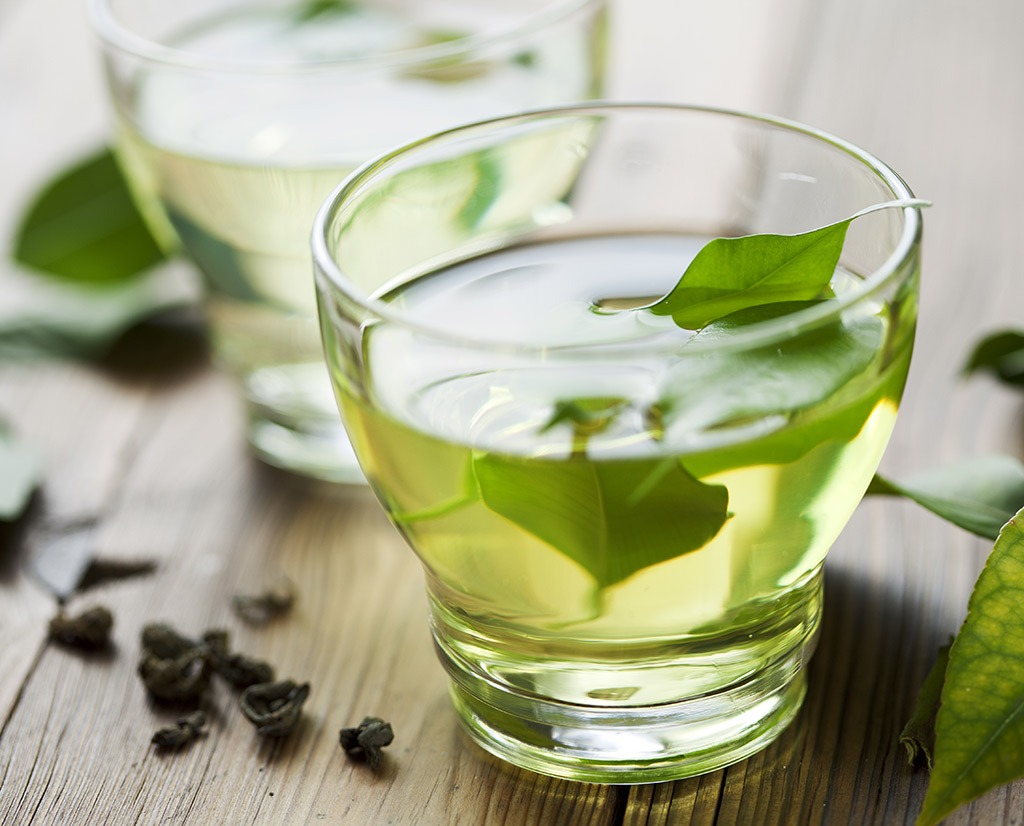
Green tea isn't just good for a jolt of caffeine; this antioxidant-rich beverage can help you blast away belly fat. Researchers in The 7-Day Flat-Belly Tea Cleanse attribute the fat-burning properties of green tea to catechins, specifically EGCG—the name of a group of antioxidative compounds that blast adipose tissue by revving the metabolism, increasing the release of fat from fat cells (particularly in the belly), and then speeding up the liver's fat burning capacity. It gets better: Research suggests that combining regular green-tea drinking with exercise may maximize the weight loss benefits. In one study, participants who combined a daily habit of 4-5 cups of green tea with a 25-minute workout lost 2 more pounds than the non-tea-drinking exercisers.
Kefir
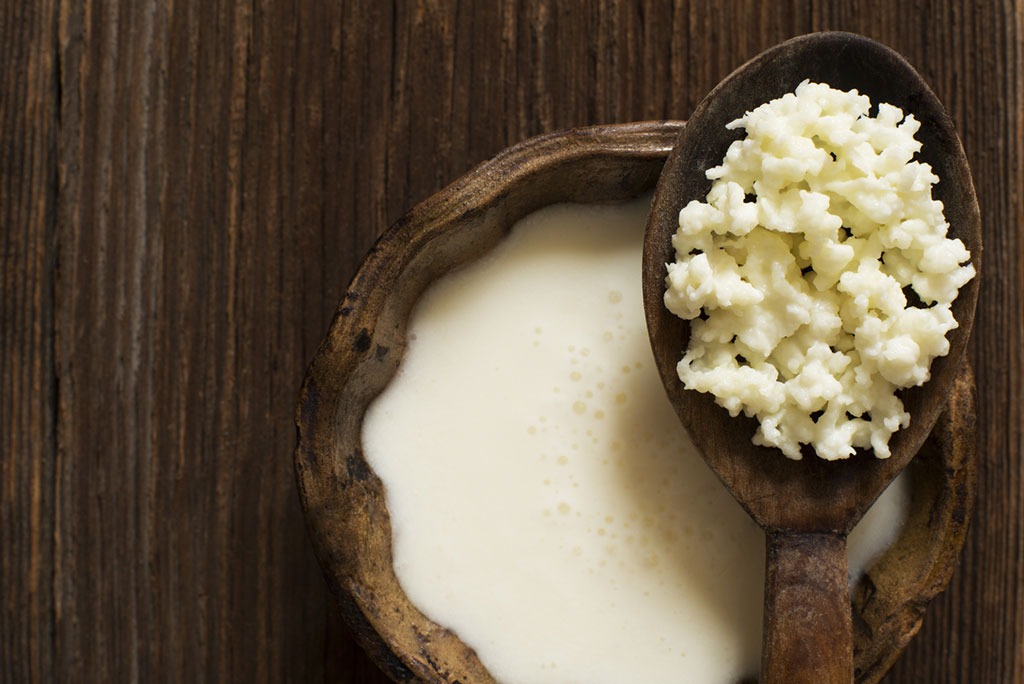
Although this smoothie-like dairy drink resides next to yogurt, if you have a dairy-intolerance, this might be your better pick. That's because kefir has been found to counteract the effects of the milk's stomach-irritating lactose: Ohio State University researchers found that knocking back this fermented drink can reduce bloating and gas brought on by lactose consumption by 70 percent. What's even more promising about kefir is that its bacteria have been found to colonize the intestinal tract, which makes them more likely to confer their healing benefits to your gut.
Kombucha
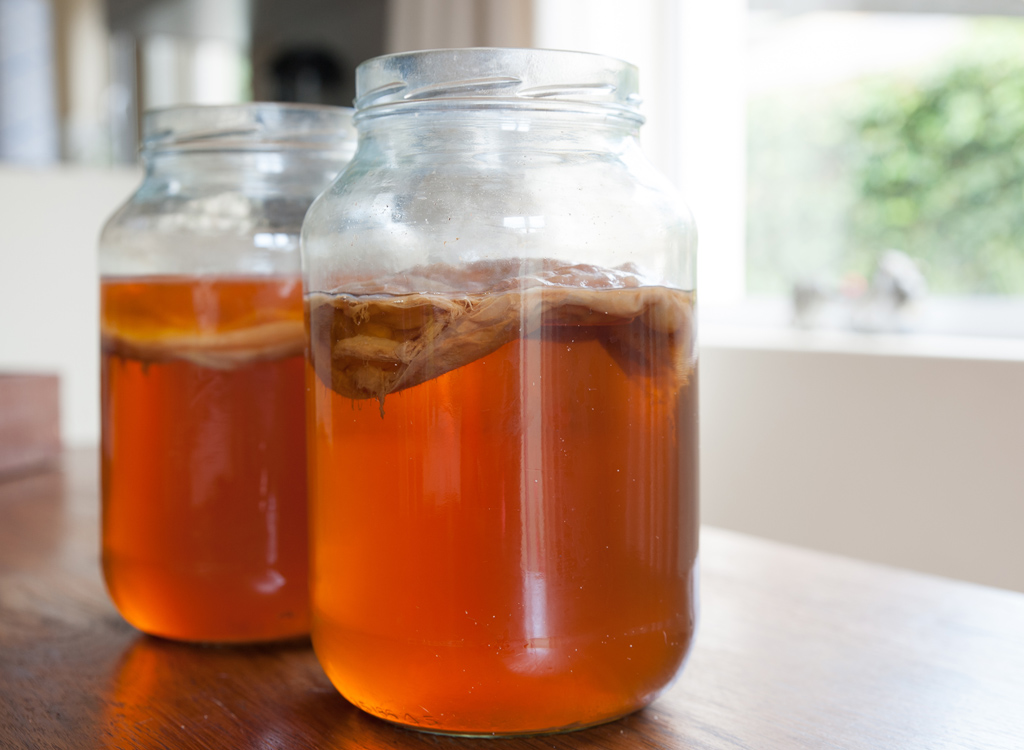
You've probably seen bottles of kombucha lining your grocery store refrigerator section but may not know why it's a healthy choice. Kombucha is a slightly effervescent fermented drink made with black or green tea and a symbiotic culture of bacteria and yeast, known as a SCOBY. This fermented tea is filled with gut-healthy probiotics which can help balance good gut bacteria and help boost your immune system. Plus, kombucha still has the healthy properties of tea, including antioxidants.
Chlorophyll Water
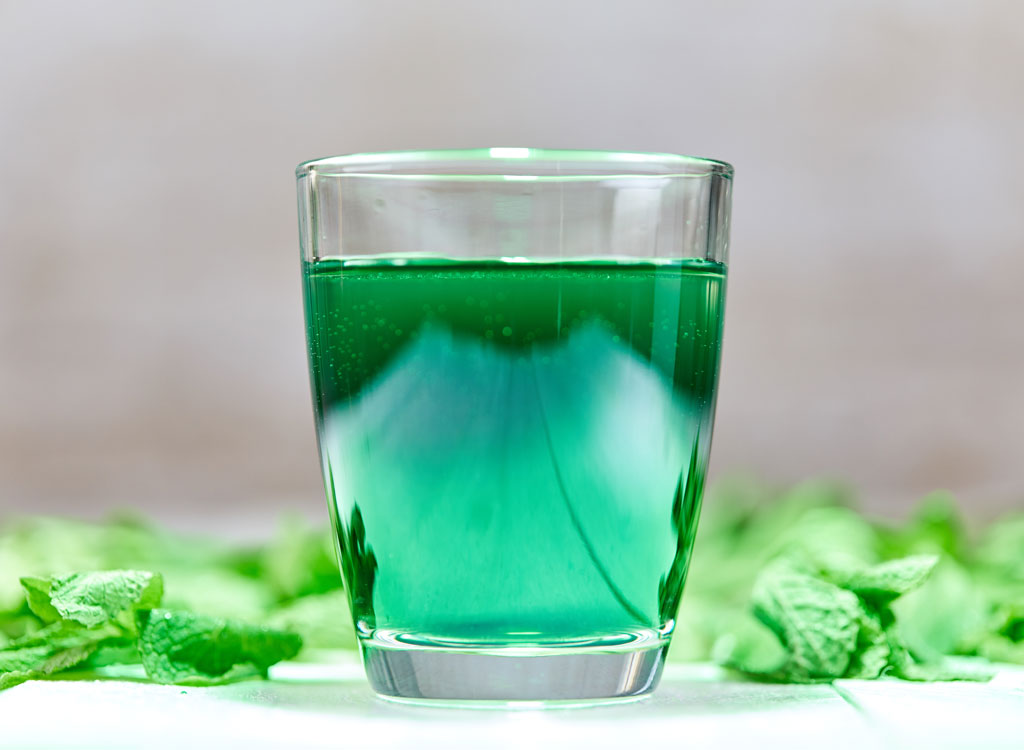
Chlorophyll water is a big trend popping up in health food stores and juice bars, and it's exactly what it sounds like—water infused with chlorophyll, the pigment that makes plants green and helps them create energy from sunlight. Although there may be a health halo around this beverage, there are some healthy benefits. Chlorophyll water contains vitamins A, C, and E, and it could help keep you healthy; a study in The Journal of Surgery found supplementing with chlorophyll may serve as a powerful immunity boost, able to increase wound healing time by up to 25 percent. Just be sure to check with your doctor before drinking it, especially if you're pregnant or breastfeeding.
Bone Broth

Bone broth may seem like another health food craze, but there's ample evidence to back up sipping on this warm beverage. The broth is made when animal bones (usually beef or chicken) are left to simmer in water for an extended period of time, which breaks down their collagen and other nutrients. Some of that broken down material from the cartilage and tendons is glucosamine (which you may have seen sold as a supplement for arthritis and joint pain). According to a study published in the journal PLOS One, when overweight, middle-aged adults took a glucosamine supplement, they were able to decrease serum CRP (inflammation biomarker) levels by 23 percent more than those who didn't take a supplement. The stock is also full of anti-inflammatory amino acids (glycine and proline), and the ample levels of gelatin will help rebuild your gut lining to further assist with your anti-inflammatory gut microbes.
Miso

It's time to start adding miso soup to your regular takeout order. But you don't have to order miso in soup form; you can also find this traditional Japanese paste in supermarkets. It's made by fermenting soybeans with salt and koji—a fungus called Aspergillus oryzae. Not only is it a complete protein (meaning it contains all 9 essential amino acids) because it comes from soybeans, but miso also stimulates the digestive system and strengthens the immune systems.
Spinach
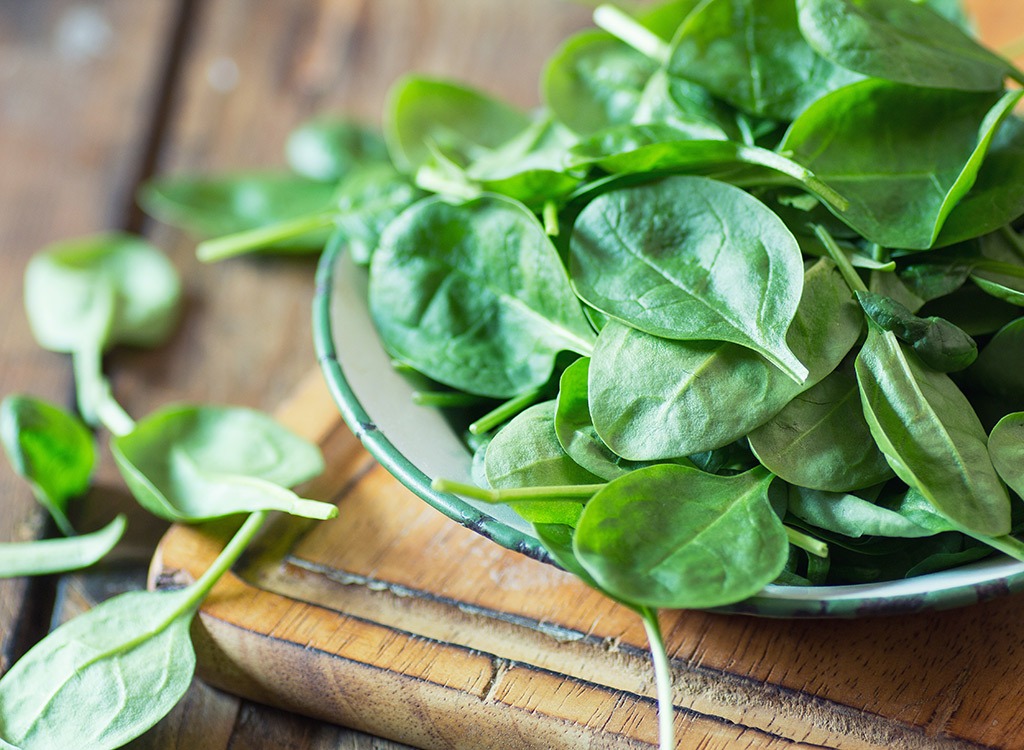
This leafy green powerhouse is a great source of not only protein, but also vitamins A and C, antioxidants and heart-healthy folate. One cup of the green superfood has nearly as much protein as a hard-boiled egg, for half the calories. Throw some into your morning smoothie (you won't even be able to taste it!), or add a handful to soups, omelets, pasta dishes and veggie stir-fries.
Broccoli
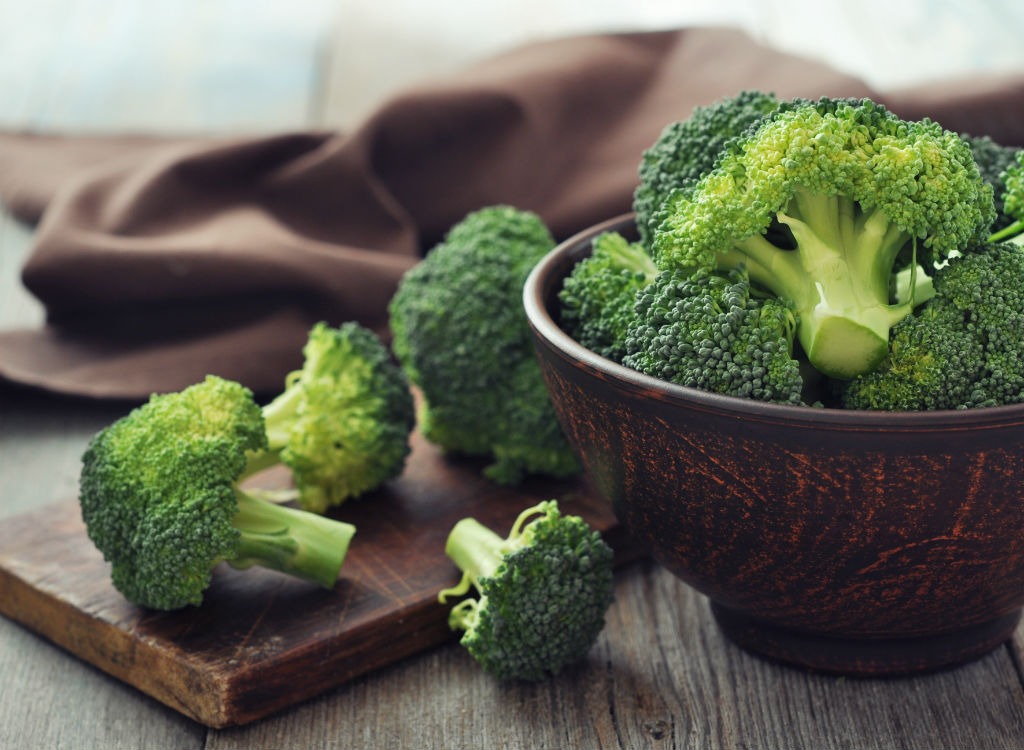
Broccoli is a cruciferous vegetable, which has been linked to some cancer-preventative properties. But that's not all; according to experts, broccoli contains a phytonutrient called sulforaphane that increase testosterone and fights off body fat storage. It's also rich in vitamin C, a nutrient that can lower levels of cortisol during stressful situations, which can also help fight belly fat. Add some steamed broccoli as a side dish to your favorite entree, or throw some into a stir-fry.
Cayenne Pepper
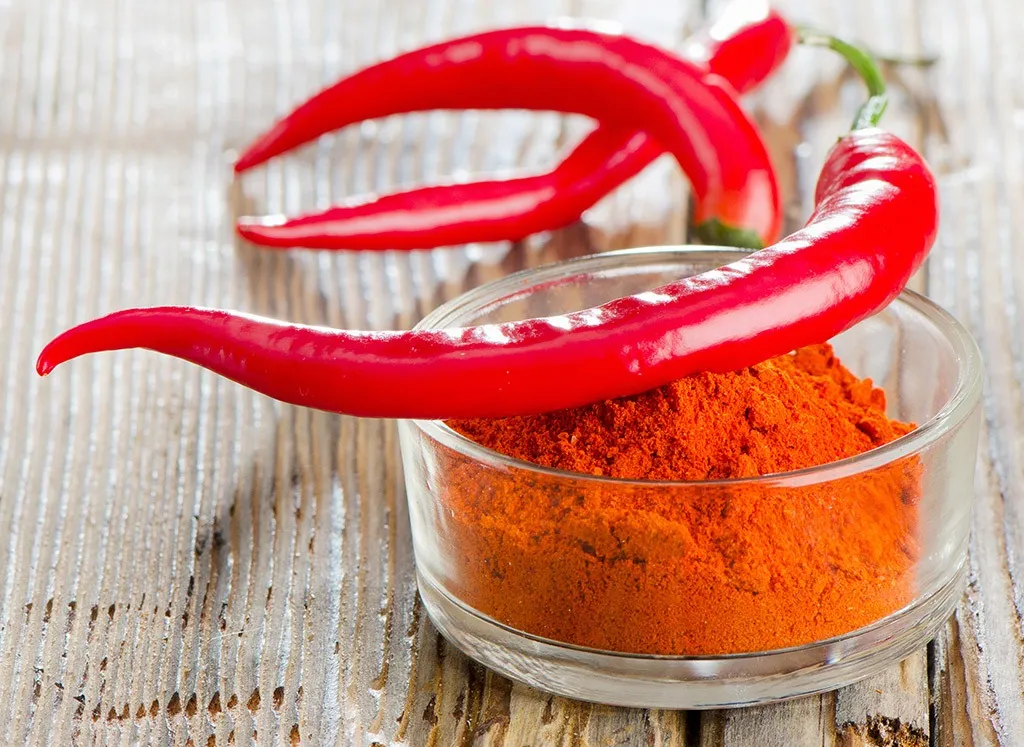
Time to turn up the heat on your meals; start sprinkling come cayenne pepper on your eggs or dousing your chili in hot sauce. Why? Spicy peppers are packed with capsaicin, which generates a little more heat in your body and helps you burn calories. Studies have shown that eating spicy food can increase your metabolism by about 8 percent. Purdue University researchers found that it only takes 1 gram of red pepper (about half a teaspoon) to increase calorie burn after a meal. Plus, they're anti-inflammatory, can help regulate blood sugar, and help suppress your appetite. It's no wonder we named spicy peppers as the number one food for weight loss.
Berries
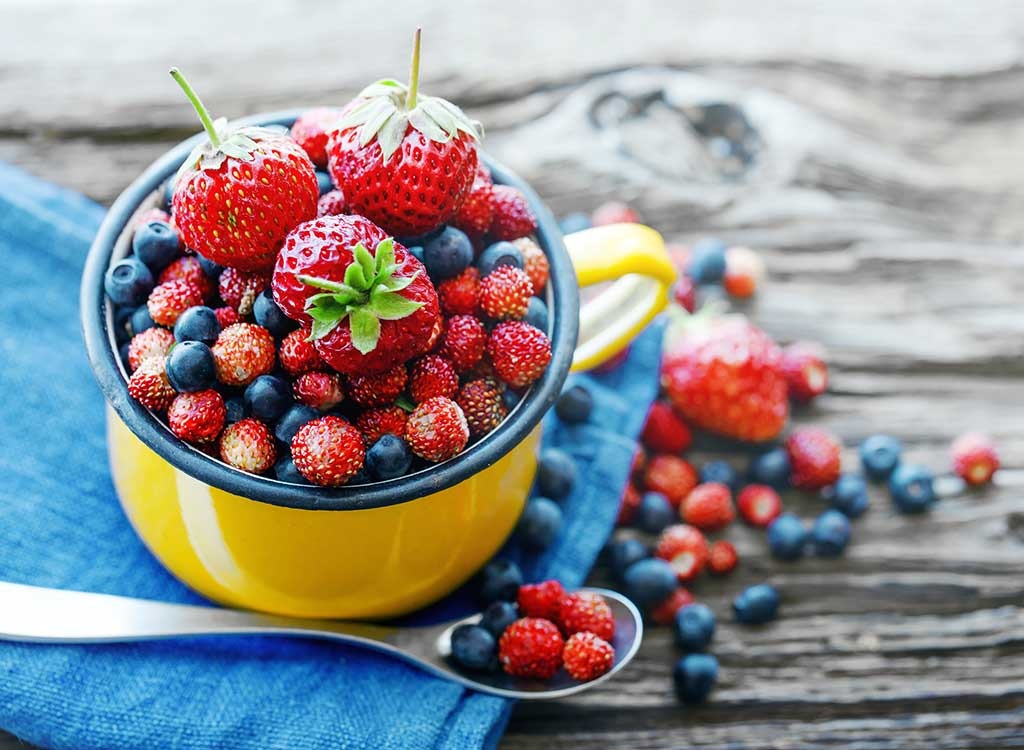
Berries are a sweet treat that are actually much lower in sugar than many other fruits; blueberries have just 7 grams per ½ cup serving. But that's not the only reason to load up on raspberries, strawberries, and blueberries—they're packed with polyphenols, powerful antioxidants that fight inflammation and even stop fat from forming. A Texas Woman's University study found that feeding mice three daily servings of berries, decreased the formation of fat cells by up to 73 percent. A University of Michigan study showed similar results. Rats who had blueberry powder mixed into their meals had less abdominal fat at the end of the 90-day study than rats on a berry-free diet. So toss some into your smoothie, top Greek yogurt with mixed berries, or snack on them solo.
Raw Oats
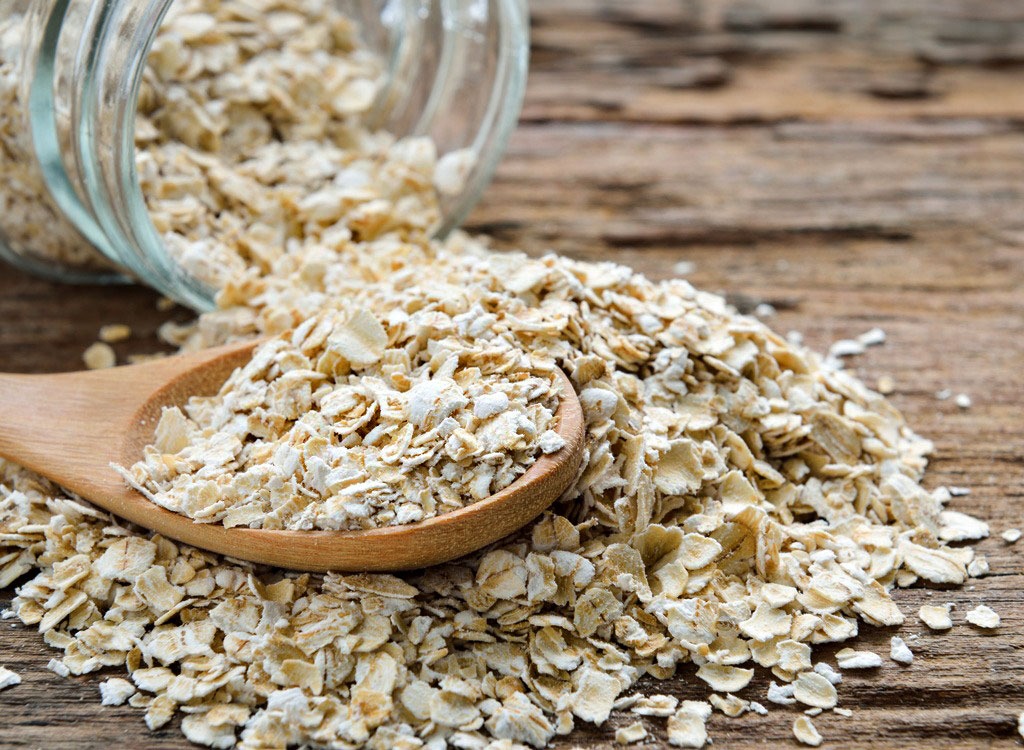
Stumped on a healthy breakfast for the new year? Opt for overnight oats. The simple combo of raw oats, almond milk, berries, and a dash of cinnamon can help you not only fight inflammation, but also reduce belly fat. Raw oats are a resistant starch, a type of carb that passes through your gut undigested. They feed your healthy gut bacteria, which in turn produce a fatty acid that encourages more efficient fat oxidation. This helps reduce inflammation in your body and helps lower insulin resistance.
Ginger

Fresh ginger doesn't just add a spicy taste to smoothies and tea; it can help fight inflammation, too. Researchers attribute ginger's health benefits to gingerols, compounds that are antioxidant, anti-inflammatory, and antibacterial. When University of Arizona researchers gave rats with experimental rheumatoid arthritis a crude ginger extract, which included the essential oils and other compounds found only in the root itself, it was able to inhibit joint swelling and inflammation. Gingerol is most abundant in fresh ginger, so be sure you are using it straight from the root.
Dark Chocolate
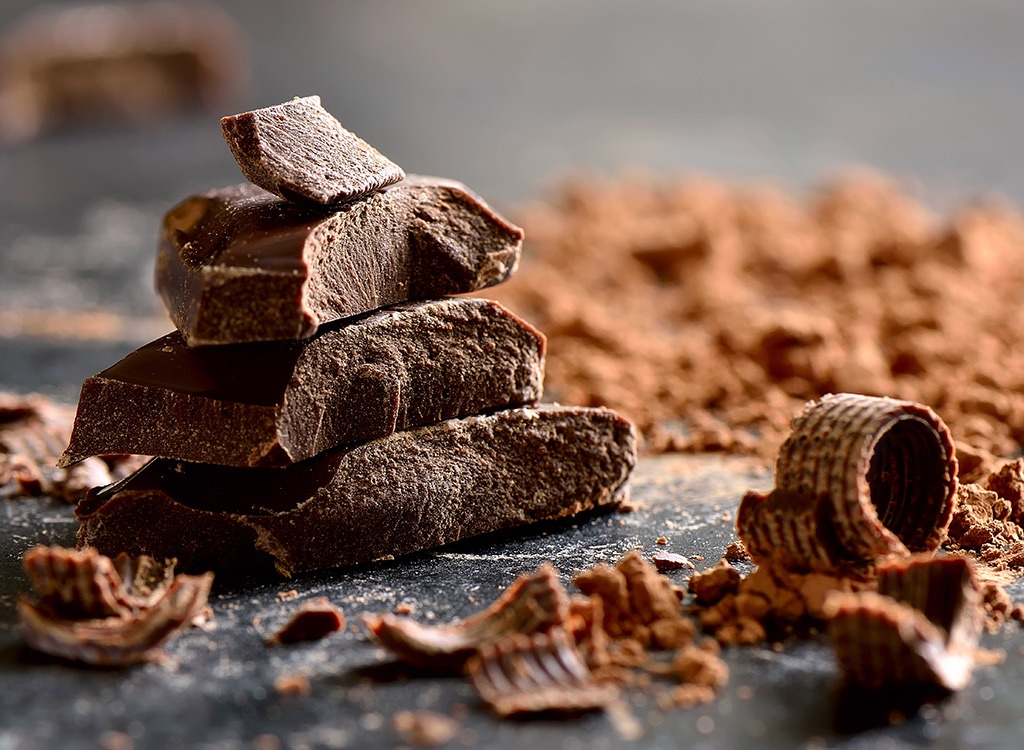
You've heard for years that dark chocolate is good for you, and now there's scientific proof to back it up. A study out of Louisiana State University found that gut microbes in our stomach ferment chocolate into heart-healthy, anti-inflammatory compounds that shut down genes linked to insulin resistance and inflammation. The antioxidants found in dark chocolate have also been linked to lower blood sugar levels. Just be sure you're eating the right kind; look for chocolate with at least 70 percent cacao because these contain the highest amounts of antioxidants.
Wild Salmon
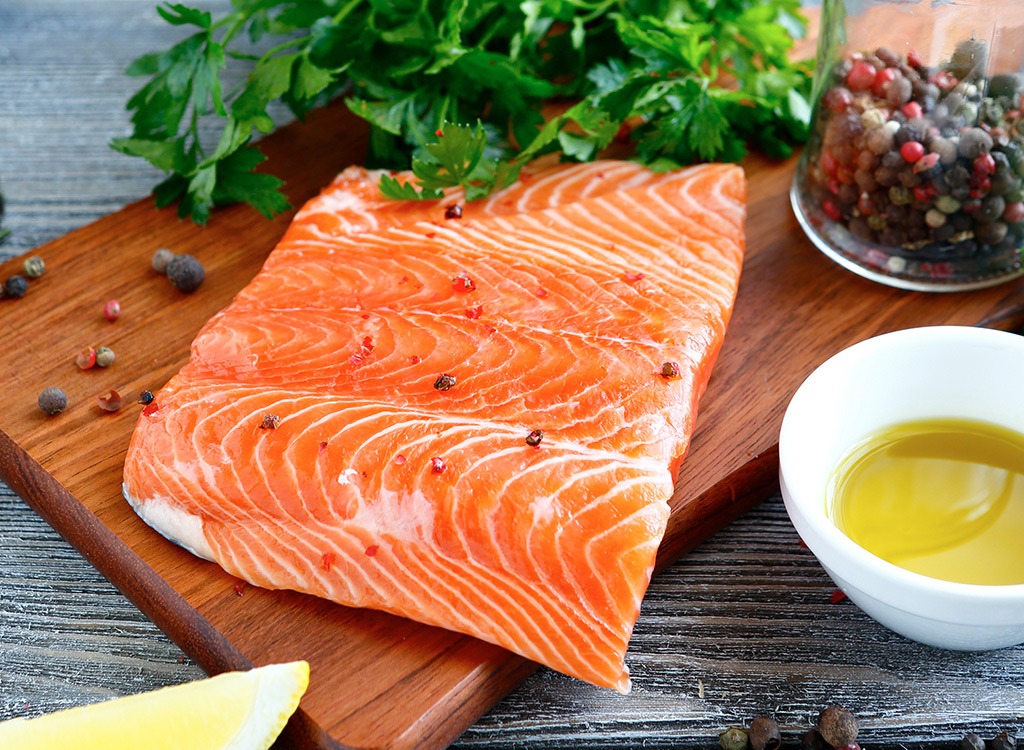
Wild salmon is chock-full of heart-healthy omega-3 fatty acids. Omega-3s can help fight inflammation, and fatty fish are one of the best sources of this class of polyunsaturated fats. Wild salmon provides you with both EPA and DHA. And unlike plant omega-3s, these two fatty acids are already in an active form, meaning they'll more efficiently attack excess inflammation through the increase in adiponectin—a hormone that enhances your muscles' ability to use carbs for energy, boosts metabolism, and burns fat, which ultimately decrease inflammation markers. The Dietary Guidelines for Americans recommend people have 8 ounces of seafood per week, preferably fatty fish like wild salmon.
Chia Seeds

Another way to get omega-3s is through chia seeds. One ounce of chia seeds has 625 milligrams of omega-3s, and it is generally recommended that adults get around 500 milligrams or more of the healthy fats. They're also packed with filling fiber and relatively low-calorie, making them a no-brainer to add to smoothies, salads, cereals, or even make your own chia seed pudding.
Quinoa
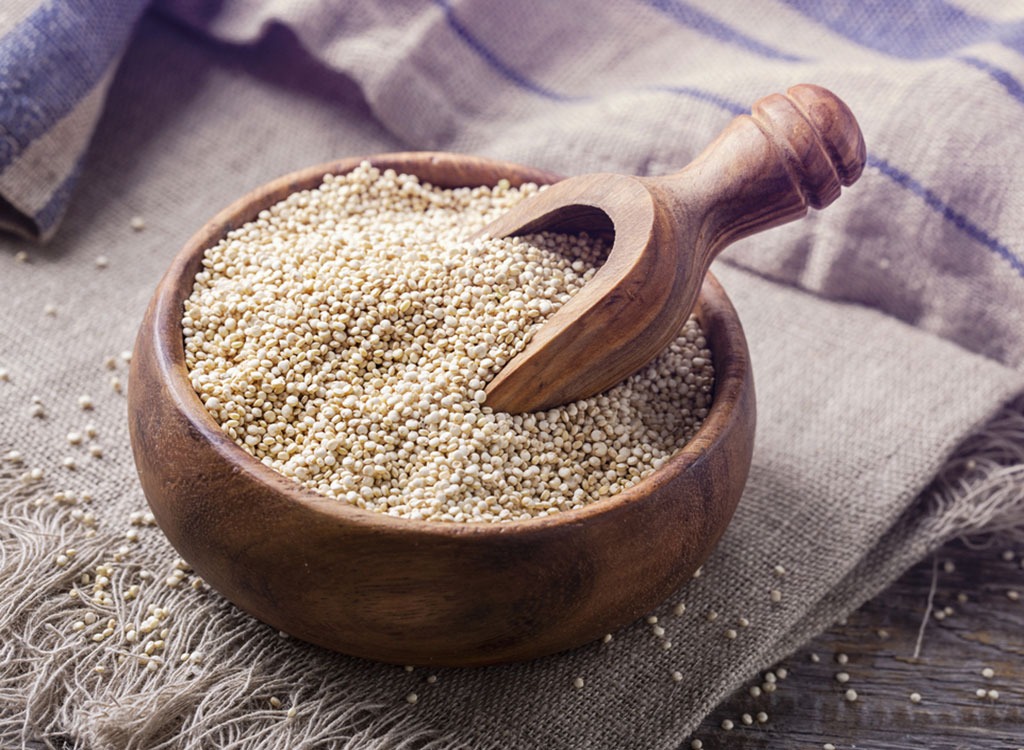
Quinoa isn't just a regular grain; it's a superfood packed with protein and fiber. Plus, it's gluten-free for those who are celiac or choose to stay away from gluten. "Quinoa is also a great source of fiber and B vitamins," says Christopher Mohr, Ph.D., R.D. a professor of nutrition at the University of Louisville. Cook a big batch while meal prepping on Sunday and enjoy it all week long.
Garlic
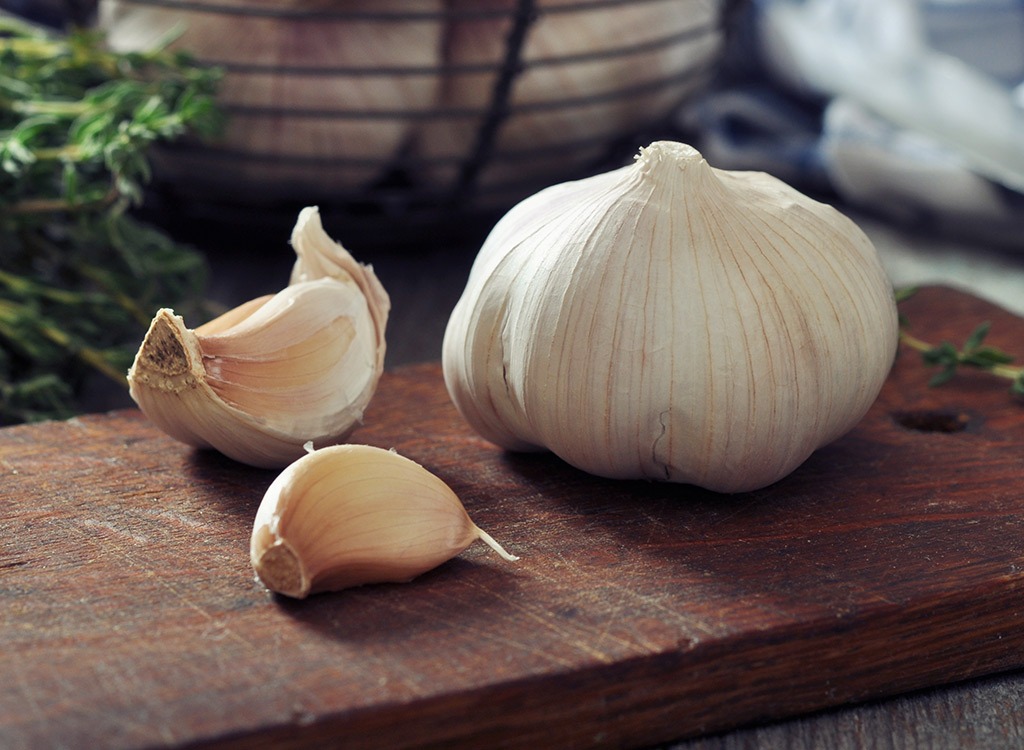
If you love the taste of garlic, you're in for a healthy surprise. This potent plant has cold-fighting and anti-inflammatory properties, thanks to the compound allicin, which blocks enzymes that play a role in bacterial and viral infections. Plus, a review published in Anti-Cancer Agents in Medicinal Chemistry explained that aged garlic extract has been found to favorably stimulate anti-inflammatory proteins while suppressing inflammatory markers in chronic inflammation environments. Although an aged garlic supplement provides the highest concentration of bioavailable compounds, studies have also shown that fresh garlic can also provide subtle benefits. Just be sure to crush the garlic first to kickstart production of the bioactive allicin compound before tossing it into your favorite stir fry or pasta sauce.
Bell Peppers
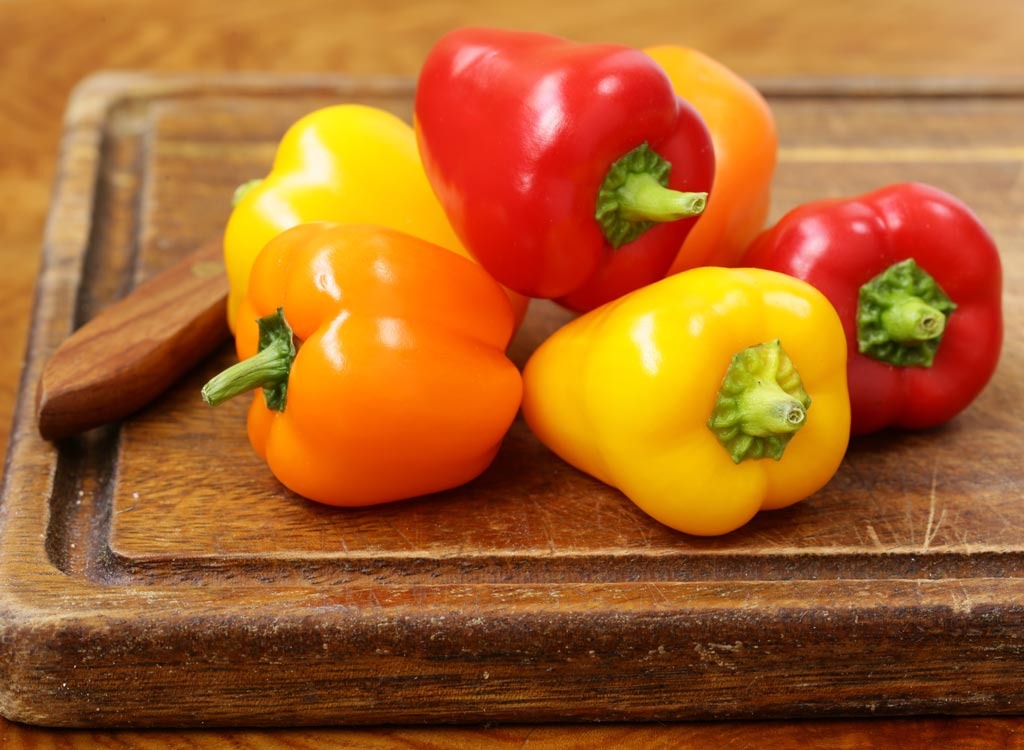
Bell peppers have a metabolism-boosting compound, dihydrocapsiate, which can help you slim down. They also have a high vitamin C content—a cup of these veggies serves up to three times the day's recommended vitamin C. This important nutrient counteracts stress hormones that trigger fat storage around the midsection. Slice some up and dip into hummus for a healthy snack or add some to your morning omelet.
Almonds
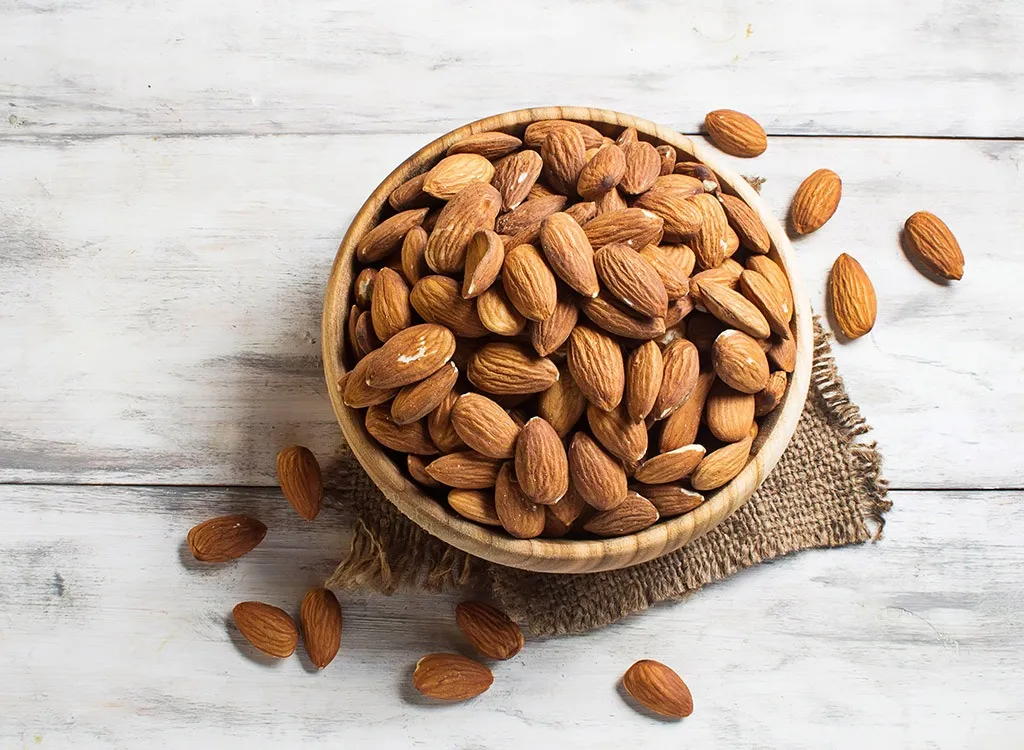
If you're looking for healthier ways to keep snacking in the new year, then look no further than almonds. This powerful nut is packed with protein, healthy fat, and fiber, making it one of the most filling nuts available. They can also help you slim down; a study of overweight and obese adults found that, combined with a calorie-restricted diet, consuming a little more than a quarter-cup of the nuts can decrease weight more effectively than a snack comprised of complex carbohydrates and safflower oil after just two weeks. To reap more rewards, snack on almonds before you hit the gym. Rich in the amino acid L-arginine, almonds can actually help you burn more fat and carbs during workouts, a study printed in The Journal of the International Society of Sports Nutrition found.
Sauerkraut

Sauerkraut isn't just for hot dogs; this lacto-fermented cabbage, which contains natural compounds, may have potent cancer-fighting and belly-slimming properties. When unpasteurized, sauerkraut is rich in Lactobacillus bacteria—even more so than yogurt—which boosts the healthy flora in the intestinal tract, bolsters your immune system, and even improves your overall health. A study published in World Journal of Microbiology and Biotechnology found that mice fed a probiotic-rich sauerkraut extract had reduced cholesterol levels. Sauerkraut is easy to ferment yourself, but keep an eye out for store-bought versions that aren't pasteurized and don't use vinegar.








